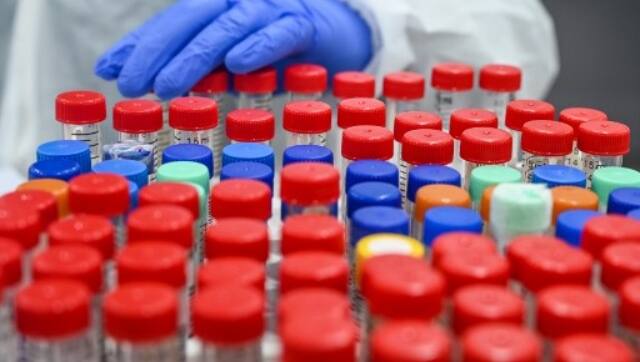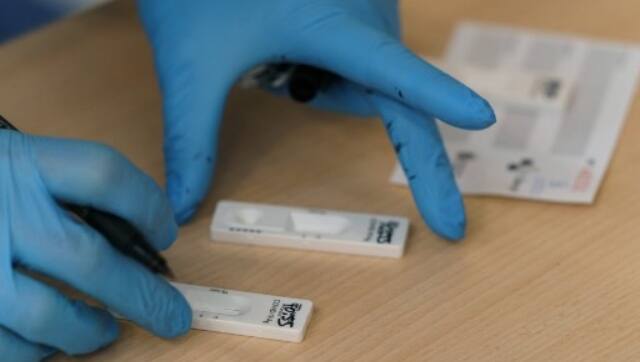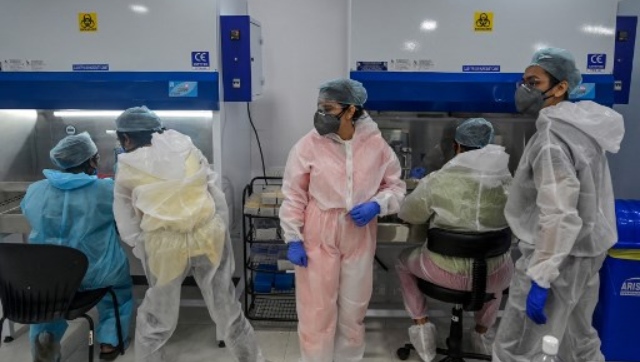The Parliamentary Standing Committee on Health and Family Welfare in its recent report on COVID-19 has said that it is “worried at the use of less reliable diagnostic tests which increase the chances of false negatives”. The chairperson of the parliamentary standing committee on health, Ram Gopal Yadav, submitted the report titled, ‘Outbreak of Pandemic COVID-19 and its Management’ to Rajya Sabha chairman M Venkaiah Naidu. This is the first report by any parliamentary committee on the government’s handling of the COVID-19 pandemic. The report said that the government “must assess the veracity of Rapid Antigen Test vis-à-vis RT-PCR and other diagnostic tests…to bring forth the true picture of the testing capacity in the country”. It has “strongly recommended” that testing facilities are ramped up “for more accurate tests”. The report also noted, “testing facility is only limited to bigger districts and cities”, and “lack of testing facilities in rural areas has also resulted in underreporting of cases”. What is the rapid antigen detection test for COVID-19? It is a test on swabbed nasal samples that detects antigens (foreign substances that induce an immune response in the body) that are found on or within the SARS-CoV-2 virus. As per The Indian Express, the test is a point-of-care test, performed outside the conventional laboratory setting, and is used to quickly obtain a diagnostic result. As per IndiaSpend, antigen testing is faster and cheaper than the “gold standard” of testing, the RT-PCR technology. It also very accurately detects positive cases of COVID-19. But its downside is that it gives a substantial number of ‘false negatives’ where a person’s test can come as negative when they could actually be positive for the viral disease. What is the difference between RT-PCR test and rapid antigen test? As mentioned by the Indian Council of Medical Research (ICMR), the RT-PCR test takes a minimum of 2-5 hours including the time taken for sample transportation. “These specifications limit the widespread use of the RT-PCR test and also impedes quick augmentation of testing capacity in various containment zones and hospital settings,” the ICMR advisory stated. In a reliable rapid antigen detection test, the maximum duration for interpreting a positive or negative test is 30 minutes. [caption id=“attachment_9041111” align=“alignnone” width=“640”]  A laboratory staff wearing Personal Protective Equipments (PPE) places a hand on samples collected for Covid-19 coronavirus testing. AFP[/caption] What is the government’s stand on this? As per guidelines issued by ICMR, those who test negative for COVID-19 by rapid antigen test should be definitely tested sequentially by RT-PCR to rule out infection, whereas a positive test should be considered as a true positive and does not need reconfirmation by RT-PCR test. In a circular on 23 June, 2020, about “newer additional strategies for COVID-19 testing”, the government has stated that antigen testing can help at “field level for early detection of infection and quick containment” and can give a “quick diagnosis of SARS-CoV-2 in field settings”. The government then said that this technology should be used both in field settings (outside of the laboratory) as well as in hospitals and along with the RT-PCR test technology. So far, antigen tests manufactured by at least three companies have been approved by the ICMR for use in India. It has allowed the use of antigen detection kits developed by the South Korean company SD Biosensor, which is commercially called Standard Q COVID-19 Ag detection kit. So what is the issue with this testing method? The ICMR has conducted an independent two-site evaluation of the SD Biosensor kit, at ICMR and AIIMS. The results revealed that the kit had very high specificity, or the ability to detect true negatives, ranging between 99.3 percent and 100 percent at the two sites. The sensitivity of the test, or its ability to detect true positives, ranged between 50.6 percent and 84 percent, depending upon the viral load of the patient. The higher the ability to detect true negatives, the more reliable is any positive result. This means that when it returns a positive result, it is 99.3 percent to 100 percent accurate, but when it returns a negative result, it could be only 50.6 percent to 84 percent accurate. This implies that the use of rapid tests could be letting some infected people return freely to the community, spreading the virus to even more people. [caption id=“attachment_9041121” align=“alignnone” width=“640”]  A healthcare worker conducts an antigen rapid test for COVID-19 during a mass screening for coronavirus. AFP[/caption] For example, in the Philippines, a high number of false negatives on tests conducted on returning workers meant that infections were seeded in new places when they were allowed to go home, sparking a fierce resurgence of cases. While experts say that rapid antigen tests can help countries with out-of-control outbreaks quickly detect where hotspots are, India’s practice of conflating the data from rapid tests and traditional RT-PCR ones risk painting an incomplete picture of its infection rates, as per this article in The Print. Mixing up these two data points could give an impression that a state is testing widely and that its number of positive cases is falling or that the increase in case numbers is slowing, when in fact that may not be the case. However, others also point out that even “gold standard” RT-PCR can miss infections, only to a lesser extent than RAT. Dr K. Srinath Reddy, president of the Public Health Foundation of India (PHFI) and member of India’s COVID-19 task force told The Print that even the RT-PCR test can miss 30-40 percent of cases if the swab is taken too early in the infection or the collection technique is not perfect. The Wire argues that the retesting method also makes ICMR’s strategy uneconomical, given that the cost of each rapid antigen test is capped at Rs 450. CS Bedi, a medical advisor to SD Biosensor, told the website, that the price of the kit could be higher than Rs 450 for non-governmental buyers. So even though antigen testing is useful to detect new positive cases of COVID-19, the fact that many of its results could be false negatives, directly impacts the fight against COVID-19. With inputs from agencies
While experts say that rapid antigen tests can help countries with out-of-control outbreaks, India’s practice of conflating the data from rapid tests and RT-PCR tests risks painting an incomplete picture of its infection rates
Advertisement
End of Article


)

)
)
)
)
)
)
)
)



